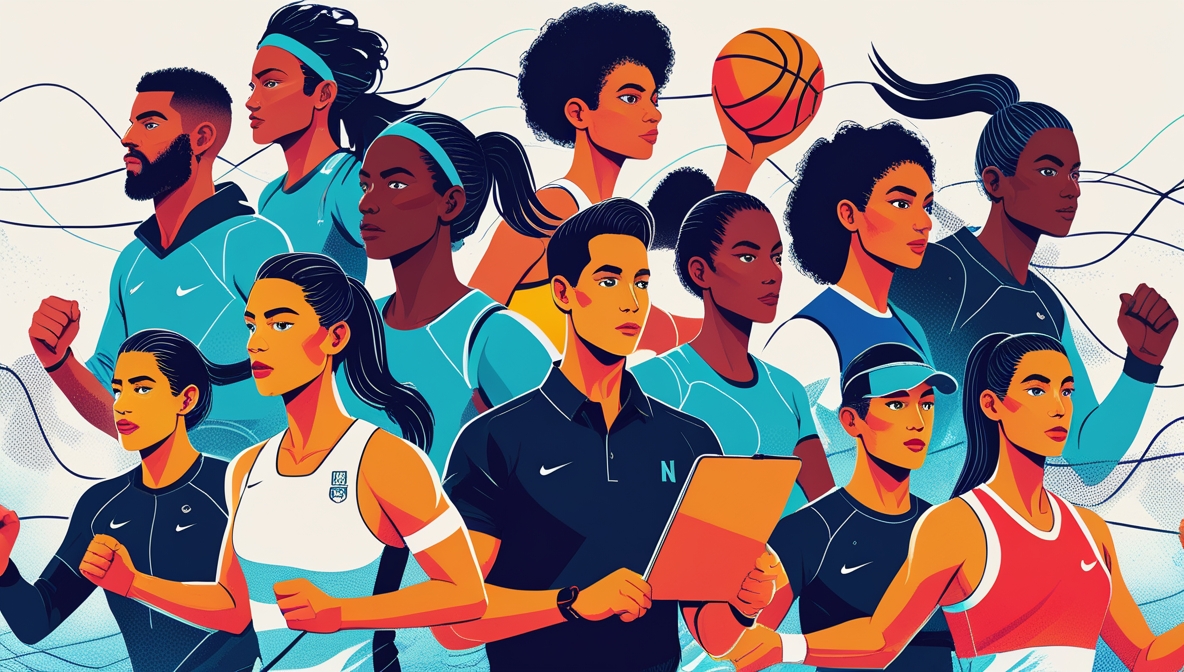Mental performance coaching has become a vital component of athletic success. With the growing awareness of the mental aspects of sports, sports psychology programs are designed to equip professionals with the skills needed to support athletes in optimizing their mental game. Whether you’re looking to enter the field or expand your knowledge, these programs provide a clear pathway to becoming a mental performance coach.
What Does a Mental Performance Coach Do?
A mental performance coach works with athletes to improve focus, motivation, resilience, and confidence. This role involves strategies like visualization, goal setting, stress management, and enhancing mental toughness. Coaches also help athletes manage anxiety, overcome setbacks, and build a mindset for consistent performance.
Essential Skills for a Mental Performance Coach
A strong foundation in psychology and an understanding of athletic performance are critical. Key skills include:
- Effective Communication: Building trust and conveying strategies clearly.
- Empathy: Understanding the unique pressures faced by athletes.
- Analytical Thinking: Identifying patterns in performance and addressing mental barriers.
- Problem-Solving: Developing tailored strategies for diverse challenges.
- Adaptability: Working with athletes across different sports and skill levels.
Types of Sports Psychology Programs
Sports psychology programs are offered at various levels and cater to different career goals. Below are the primary options:
1. Undergraduate Degrees in Sports Psychology
- Provides a foundation in psychological principles and their application to sports.
- Includes courses on human behavior, motivation, and performance analysis.
- Often includes internships with sports teams or training facilities.
2. Master’s Programs in Sports Psychology
- Focuses on advanced techniques in mental coaching.
- Covers topics like performance enhancement, psychological assessment, and intervention strategies.
- Often includes practical training and research opportunities.
3. Doctoral Programs in Sports Psychology
- Prepares students for leadership roles in academia, research, or high-level consulting.
- Includes in-depth study of psychological theories and their application to elite athletes.
- Requires a dissertation and extensive clinical training.
4. Certification Programs
- Ideal for professionals in related fields, such as coaching or counseling.
- Provides specialized knowledge in mental performance techniques.
- Examples include certifications from the Association for Applied Sport Psychology (AASP).
5. Workshops and Online Courses
- Short-term programs focusing on specific skills like mindfulness, resilience training, or visualization techniques.
- Flexible options for working professionals or those exploring the field.
Top Institutions Offering Sports Psychology Programs
1. University of Denver
- Offers a Master’s in Sport and Performance Psychology.
- Emphasizes experiential learning through fieldwork and internships.
- Includes coursework on team dynamics, motivation, and performance strategies.
2. Florida State University
- Provides undergraduate and graduate programs in sports psychology.
- Known for research opportunities and access to athletic teams for practical experience.
3. John F. Kennedy University
- Offers an MA in Sport Psychology with an option for dual certification in clinical counseling.
- Combines academic knowledge with practical application in sports settings.
4. University of Ottawa
- Features a robust program focusing on the psychological aspects of sports and physical activity.
- Known for its bilingual courses in English and French.
5. University of Tennessee
- Offers a PhD in Kinesiology with a concentration in sports psychology.
- Focuses on developing both research and applied skills for high-performance settings.
Steps to Build a Career in Mental Performance Coaching
1. Earn a Relevant Degree
- Start with a bachelor’s degree in psychology, kinesiology, or a related field.
- Pursue a specialized master’s or doctoral program to gain advanced expertise.
2. Gain Practical Experience
- Intern with sports teams, athletic departments, or private coaching firms.
- Volunteer as a mental skills coach to build your portfolio.
3. Obtain Certification
- Consider certifications like Certified Mental Performance Consultant (CMPC) from AASP.
- These credentials demonstrate expertise and increase career opportunities.
4. Network with Industry Professionals
- Attend conferences, workshops, and seminars.
- Join organizations like AASP or the International Society of Sport Psychology (ISSP).
5. Stay Current with Research
- Regularly review journals and publications in sports psychology.
- Incorporate evidence-based practices into your coaching methods.
Career Opportunities in Mental Performance Coaching
Mental performance coaching offers diverse opportunities across various settings:
- Professional Sports Teams: Supporting elite athletes in managing pressure and maintaining peak performance.
- Collegiate Athletics: Helping student-athletes balance academics and sports while developing mental resilience.
- Private Practice: Offering one-on-one coaching to athletes, business professionals, and performers.
- Corporate Training: Applying mental coaching techniques to improve productivity and teamwork in business environments.
- Academia and Research: Contributing to the field through teaching and conducting research.
Challenges in the Field
While rewarding, mental performance coaching comes with challenges:
- Establishing Credibility: Building trust with athletes and teams can take time.
- Balancing Theory and Practice: Applying academic knowledge in dynamic, high-pressure situations.
- Continuous Learning: Staying updated on new techniques and adapting to changes in sports culture.
Benefits of Pursuing a Career in Mental Performance Coaching
- Positive Impact: Helping athletes achieve their goals and overcome challenges.
- Diverse Roles: Opportunities to work across different sports and industries.
- Growth Potential: Increased recognition of mental performance in sports has led to growing demand for professionals in this field.
Final Thoughts
Training for a career in mental performance coaching requires dedication, specialized education, and practical experience. By selecting the right program and staying committed to professional growth, you can make a meaningful impact on the lives of athletes while advancing your career in sports psychology.
